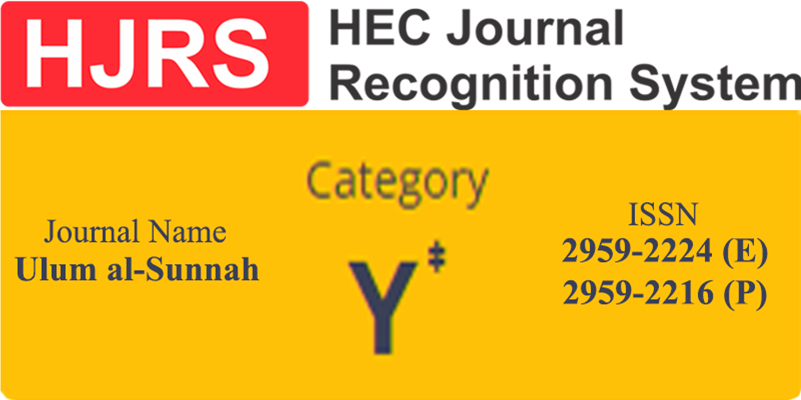التنظيم الإداري في ضوء السنة النبوية
Administrative Organization in the light of Sunnah al-Nabawiyyah
DOI:
https://doi.org/10.5281/zenodo.11275165Keywords:
Administrative System in Islam, Politics in Ryaste Medina, Administrative measures in Hadiths, Political responsibilities in SunnahAbstract
In this article, the politics of the Holy Prophet (PBUH) has been discussed. Politics in Islam is defined as the worship and service to mankind. Therefore, there is the Hadiths clearly explain the politics of the prophets of the Israelites. As is the firm principle, the Messenger is the ruler and administrator of his covenant. When the prophet's politics is mentioned, the first thing comes to mind is the idea of first state of Islam i.e, Medina. He established this state on the basis of Islamic politics. And He takes political and administrative measures to govern its administration. These measures are considered to be rules and regulations for the Muslim Ummah in their political system. Such as organization of government, determination criterion and working class. He appointed his Companions on merit according to their abilities on administrative and political positions. These functions and responsibilities of the Companions are discussed in this article. The most important administrative functions are "النقابة" "السقاية" "العرافة" "الحجابة" "الكتابة" "المحتسب" "الجاسوس" "مقيم الحدود"etc.
Downloads
Published
How to Cite
Issue
Section
License
Copyright (c) 2023 Dr. Hafiz Muhammad Aslam

This work is licensed under a Creative Commons Attribution-NonCommercial 4.0 International License.
This is an open-access journal which means that all content is freely available without charge to the user or his/her institution. Users are allowed to read, download, copy, distribute, print, search, or link to the full texts of the articles, or use them for any other lawful purpose, without asking prior permission from the publisher or the author. All articles are available on the internet to all users immediately upon publication. Non-commercial use and distribution in any medium are permitted, provided the author and the journal are properly credited.











 Research Journal Indexed by Google Scholar
Research Journal Indexed by Google Scholar